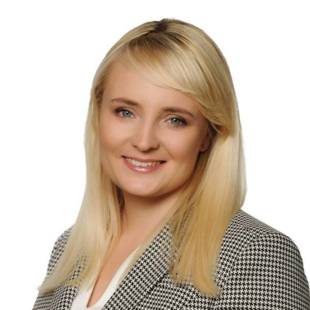Legislative frameworks to combat illicit trade in medical products in Poland

- What legislative framework is there to combat illicit trading and other illegal activities in counterfeited/falsified/diverted medicines in your jurisdiction?
- What other products apart from medicines are covered by the above legislative framework in your jurisdiction (i.e. medical devices, veterinary medicines, cosmetics)?
- Are illicit trading, counterfeiting/falsification and other illegal activities involving medicines regarded as a separate group of crimes in your jurisdiction, or are they prosecuted as crimes in more general categories, such as intellectual property or fraud?
- Has the Medicrime convention been ratified in your jurisdiction? If so, how is it implemented?
- What types of liability exist in your jurisdiction for counterfeiting/falsification of medicines (and other products, if applicable)? Is separate liability provided for falsification/counterfeiting of biologics (e.g. vaccines)?
- Which state bodies/agencies are involved in anti-counterfeiting activities regarding medicines (and other products, if applicable) in your jurisdiction, and what are their roles? What is the role of the Pharmaceutical inspectorate in anti-counterfeiting activities in your country?
- How can the manufacturers, MAHs or IP rights holders for affected products be engaged in investigations regarding illicit trade/counterfeiting/falsification, and what rights do they have during such investigations?
- Is it possible to recover damages caused by the counterfeiting/falsification of a medicine (or other products, if applicable)?
- Is it possible to sell medicines, medical devices and veterinary medicines online in your jurisdiction? If so, what are the specific rules and restrictions around these activities?
- What protective measures and safety features (e.g. 2D verification, anti-tampering devices or other labelling requirements) are required in your jurisdiction to combat illicit trading and counterfeited/falsified medicines?
- Are there any legislative developments in your jurisdictions in the sphere of combating illicit trading and other illegal activities involving counterfeited/falsified medicines (and other products, if applicable)?
1. What legislative framework is there to combat illicit trading and other illegal activities in counterfeited/falsified/diverted medicines in your jurisdiction?
Polish law includes various regulations pertaining to illegal activities regarding falsified or counterfeited medicinal products. For example, the ban on illegal activities regarding falsified medicinal products is regulated under the Act of 6 September 2001, the Pharmaceutical Law (the “PL Pharmaceutical Law”). Among other things, this covers the manufacturing of falsified medicinal products, their storage, delivery, and sale. Similarly, under the Act of 6 June 1997, the Penal Code (the “PL Penal Code”), it is prohibited to manufacture and market harmful substances, including medicinal products, that do not comply with the applicable quality standards.
There are also other regulations that pertain to counterfeiting in general: under the Act of 16 April 1993 on Combating Unfair Competition, it is prohibited to copy the external image of a product or market such product.
Counterfeiting medicinal products can be also combated by applying the relevant provisions of the Act of 30 June 2000, Industrial Property Law. This will apply if the relevant products or their packaging are protected by certain intellectual property rights, e.g. patents or trademarks.
In addition, counterfeiting medicinal products can also be combated by customs enforcement of the relevant intellectual property rights protecting those products under EU Regulation 608/2013 of 12 June 2013 concerning the customs enforcement of intellectual property rights.
2. What other products apart from medicines are covered by the above legislative framework in your jurisdiction (i.e. medical devices, veterinary medicines, cosmetics)?
As a rule, the PL Pharmaceutical Law only applies to medicinal products for humans (including e.g. herbal and immunological medicinal products) and veterinary medicinal products. On the other hand, the PL Penal Code applies not only to medicinal products but also to foodstuffs, medical devices, and cosmetics.
3. Are illicit trading, counterfeiting/falsification and other illegal activities involving medicines regarded as a separate group of crimes in your jurisdiction, or are they prosecuted as crimes in more general categories, such as intellectual property or fraud?
As a rule, the falsification and counterfeiting of medicinal products are considered a separate group of crimes; however, the former can also be prosecuted under more general provisions that do not specifically pertain to medicinal products. For example, marking any products with a counterfeited trademark, including a European Union trademark, for the purposes of marketing or marketing that product is subject to a fine, with a penalty of limitation of liberty or imprisonment of up to two years.
4. Has the Medicrime convention been ratified in your jurisdiction? If so, how is it implemented?
No, the Medicrime convention has not been ratified in Poland.
5. What types of liability exist in your jurisdiction for counterfeiting/falsification of medicines (and other products, if applicable)? Is separate liability provided for falsification/counterfeiting of biologics (e.g. vaccines)?
The falsification of medicinal products is subject to criminal and civil liability, as described in points 1 and 3 above. It is worth mentioning that under the PL Pharmaceutical law, there is also administrative liability for non-compliance with some obligations provided for in EU Regulation No. 2016/161.
In addition, a person who manufactures or markets a falsified or counterfeited medicinal product can be subject to civil liability, either towards a patient who suffers harm or damage, or the manufacturer of the original medicinal product.
It is worth noting that counterfeiting medicinal products that are protected by the relevant intellectual property rights is subject to civil liability towards the IP rights holders. IP holders can request, among other actions, the seizure and destruction of the relevant products, prohibition from introducing them to the market and the return of unlawfully obtained benefits, as well as the recovery of damages.
There is no separate liability regime for biopharmaceutical products.
6. Which state bodies/agencies are involved in anti-counterfeiting activities regarding medicines (and other products, if applicable) in your jurisdiction, and what are their roles? What is the role of the Pharmaceutical inspectorate in anti-counterfeiting activities in your country?
Regarding initiating and conducting criminal proceedings concerning the falsification and counterfeiting of medicinal products, the authorities responsible are the police and prosecutors. The Polish Pharmaceutical Inspectorate is also involved in this process as it oversees, e.g. the conditions of manufacture, import, distribution of medicinal products, as well as compliance with the provisions of EU Regulation No. 2016/161.
If there is a suspicion that a medicinal product has been falsified, then a regional pharmaceutical inspector can issue a decision to withhold the circulation of a particular medicinal product series.
Additionally, the customs authorities are also engaged in anti-counterfeiting activities regarding medicines that are protected by the relevant intellectual property rights under EU Regulation 608/2013.
7. How can the manufacturers, MAHs or IP rights holders for affected products be engaged in investigations regarding illicit trade/counterfeiting/falsification, and what rights do they have during such investigations?
Proceedings pertaining to falsified or counterfeited medicinal products, depending on the exact legal basis for their initiation, are conducted in different regimes: either criminal or administrative. In either case, manufacturers and MAH can be engaged in proceedings as they have a legal interest to participate. The scope of such engagement will again depend on the regime of the proceedings. As a rule, such party should be entitled to, e.g. access the case file, actively participate in the proceedings and submit a motion for evidence. In particular, IP rights holders can be engaged in such criminal investigations as an injured party.
8. Is it possible to recover damages caused by the counterfeiting/falsification of a medicine (or other products, if applicable)?
Yes, as indicated in point 5 above the counterfeiting of medicinal products is subject to civil liability, and hence parties who sustain damages can seek compensation.
9. Is it possible to sell medicines, medical devices and veterinary medicines online in your jurisdiction? If so, what are the specific rules and restrictions around these activities?
As a rule, online sales of medicinal products and medical devices is admissible in Poland. However, there are some restrictions on sales of medicinal products. Only OTC medicinal products can be sold online, and these services can only be provided via licensed pharmacies and pharmaceutical points.
10. What protective measures and safety features (e.g. 2D verification, anti-tampering devices or other labelling requirements) are required in your jurisdiction to combat illicit trading and counterfeited/falsified medicines?
Under Polish law, certain safety features must be applied which include in particular:
- A unique identifier in the form of a barcode, making it possible to conduct a 2D verification of each unit pack of a medicinal product. This is part of a serialisation process.
- An anti-tampering device in the form of a security seal, placed to verify whether a unit pack has been tampered with.
11. Are there any legislative developments in your jurisdictions in the sphere of combating illicit trading and other illegal activities involving counterfeited/falsified medicines (and other products, if applicable)?
We are not aware of any legal developments in this regard.






